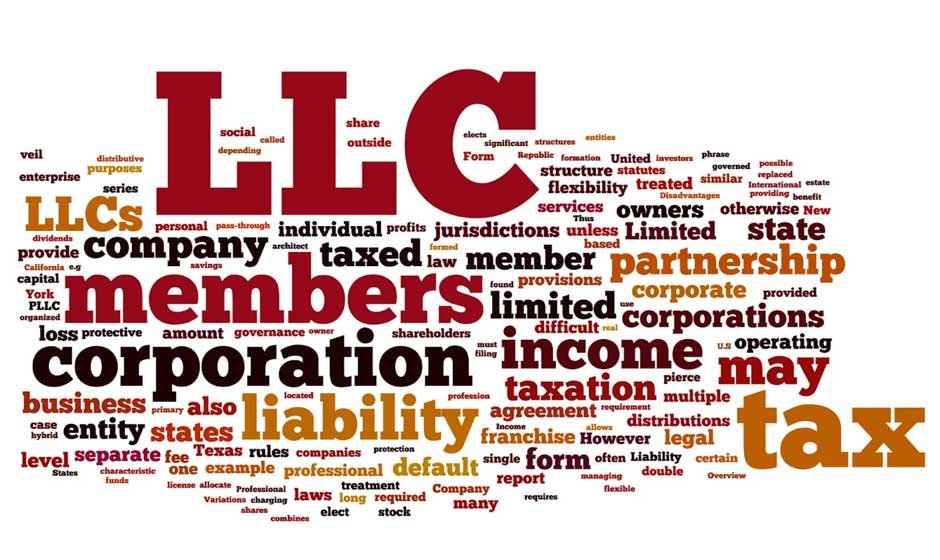Forming a Limited Liability Company (LLC) is a major milestone for any entrepreneur. It means your business is now a recognized legal entity, which offers liability protection and flexibility in management and taxation. But the journey doesn’t stop with your successful LLC filing. Whether you’ve just completed your North Carolina LLC formation or set up shop in another state, the real work begins now.
This post will guide you through the most important next steps after forming your LLC so you can build on that foundation with confidence, compliance, and clarity.
Step 1: Complete Any Additional State Requirements
Every state has its own set of follow-up requirements after LLC formation. For example, in North Carolina, once you’ve completed your North Carolina LLC formation, you must file an Annual Report with the Secretary of State. This keeps your LLC in good standing and helps the state maintain accurate records.
In some states, such as New York, businesses are required to publish notice of their LLC formation in local newspapers. In New Jersey, new businesses must file a Business Registration form within 60 days. Make sure you check with your state’s Secretary of State office or website to confirm what additional filings or steps may be necessary.
Step 2: Create an LLC Operating Agreement
Even if your state doesn’t require one, drafting an LLC Operating Agreement is a smart move. It defines how your LLC will be run and how decisions will be made. This document is essential for multi-member LLCs but also beneficial for single-member ones.
Here’s what an operating agreement should include:
- How the business will be managed (by members or managers)
- Roles and responsibilities of each member
- Voting rights and decision-making processes
- Rules for profit and loss distribution
- Procedures for adding or removing members
- Exit strategy or dissolution plan
Having a written agreement reduces the chance of misunderstandings and can help protect your business in the eyes of the law.
Step 3: Obtain an EIN from the IRS
An Employer Identification Number (EIN) is similar to a Social Security number for your business. You will need an EIN if your LLC intends to hire employees, open a bank account in the name of the business (as opposed to in your name), or file any other federal taxes.
Even if your business is a single-member LLC and has no employees, it is still a good idea to obtain an EIN. Having an EIN will help separate your personal and business finances, thereby enhancing your limited liability protection. You can apply for an EIN for free through a quick online application on the IRS website.
Step 4: Open a Business Bank Account
Once you’ve completed your North Carolina LLC formation, it’s crucial to keep your business finances separate from your personal ones. Opening a business bank account is the first step in doing so.
To open an account, you’ll typically need:
- A copy of your LLC formation documents
- Your EIN
- Your operating agreement
Separating your finances not only simplifies bookkeeping and tax filing but also helps maintain your personal liability protection by showing your LLC is a distinct legal entity.
Step 5: Obtain Necessary Business Licenses and Permits
Depending on your business type and location, you may need licenses, permits, or registrations at the federal, state, or local level.
Some examples include:
- General business licenses (city or county-issued)
- Sales tax licenses or reseller permits
- Zoning and land use permits
- Health and safety permits
- Professional licenses for certain industries (like healthcare or construction)
North Carolina businesses may need to register with the North Carolina Department of Revenue to collect and remit sales tax. Check with local agencies to ensure you have everything required to operate legally.
Step 6: File the Beneficial Ownership Information Report (BOI)
Starting January 1, 2024, many businesses, including LLCs, are required to file a Beneficial Ownership Information Report with the U.S. Department of the Treasury’s Financial Crimes Enforcement Network (FinCEN).
This report includes details about anyone who owns at least 25% of the company or exercises significant control. If there are changes to ownership or addresses, you must update your report. This is a federal requirement, and failure to comply could result in penalties.
Step 7: Get Business Insurance
Protecting your company against unforeseen liabilities is essential. Consider getting business insurance such as:
- General Liability Insurance
- Professional Liability Insurance
- Workers’ Compensation Insurance (required in most states if you have employees)
- Property Insurance
Insurance not only provides peace of mind but may also be necessary to sign contracts, rent commercial space, or obtain funding.
Step 8: Set Up Accounting and Tax Systems
From day one, it’s important to keep accurate financial records. An accountant can help you:
- Choose the right accounting method (cash or accrual)
- Set up bookkeeping systems
- Stay compliant with tax laws
- Claim eligible deductions
- File quarterly tax payments (if required)
Remember, North Carolina LLCs may be subject to a Franchise Tax, and federal self-employment taxes also apply to members drawing profits.
Step 9: Maintain Ongoing Compliance
Your responsibilities don’t end once your LLC is up and running. Here’s what to stay on top of:
- Annual Reports:In North Carolina, these must be filed with the Secretary of State every year by April 15th.
- Franchise Taxes:Some states (like North Carolina) charge this fee annually.
- Renew Licenses and Permits:Track expiration dates and renew them on time.
- Hold Member Meetings:While not always required, regular meetings can help document key decisions.
Keeping good records and meeting deadlines will help you maintain your LLC’s good standing and avoid penalties.
Step 10: Get Help When You Need It
Running a business is a learning experience, and it’s okay to ask for help. Work with legal, financial, and business professionals who can guide you. Whether it’s drafting contracts, managing taxes, or growing your team, outside experts can help you make informed decisions.
If you’ve just completed your North Carolina LLC formation, firms like MyCorporation offer ongoing services to help you meet state and federal compliance requirements. From preparing annual reports to filing the BOI, you’ll save time and avoid the hassle of missing key deadlines.
Final Thoughts
Forming an LLC is an exhilarating first step forward, but it’s only the initial step in your journey. Getting your EIN number, opening a business bank account and staying on top of compliance with state and federal regulations are great, and all of these steps are building blocks for your future success.
With intentional planning, the right tools and resources, and professional support when necessary, your LLC can grow to be a dynamic organization. Get smart, stay organized and take every step intentionally.










